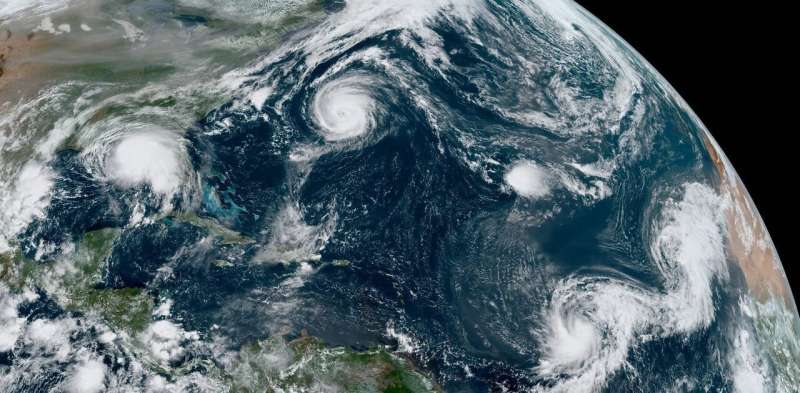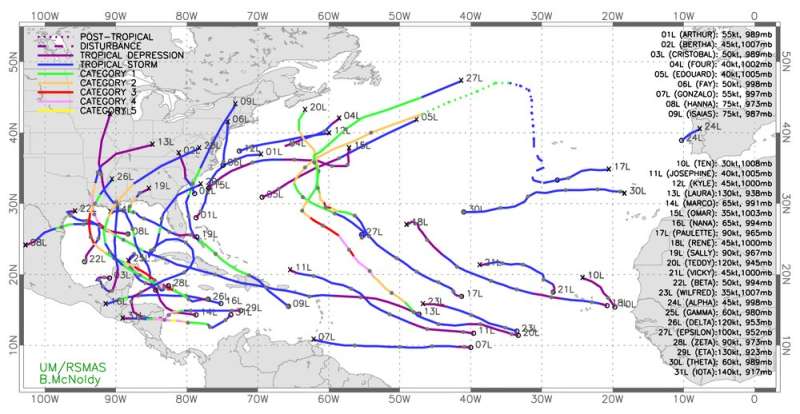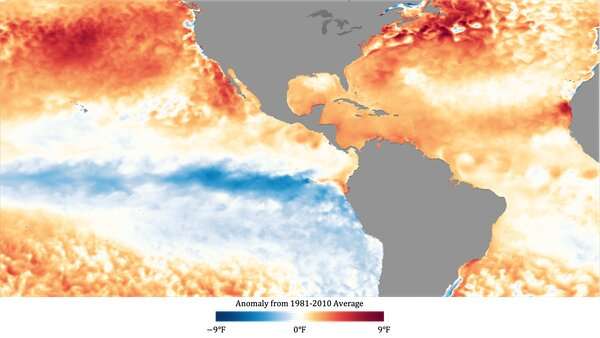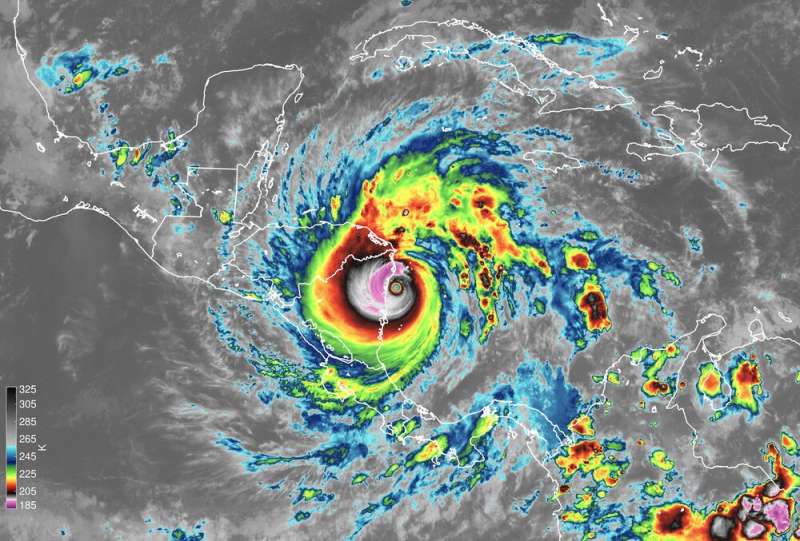The 2020 Atlantic hurricane season was a record-smasher – and it's raising more concerns about climate change

It was clear before the 2020 Atlantic hurricane season started that it was . Six months later, we're looking back at a , and the storms may still not be over even with the season's official end on Nov. 30.
This season had the most named storms, with 30, taking the record from the calamitous 2005 season that brought to New Orleans. It was only the second time the was exhausted since naming began in the 1950s.
Ten storms underwent , a number not seen since 1995. Twelve made landfall in the U.S., also setting a . Six of those landfalling storms were hurricane strength, tying yet another record.
As , we target our research at better understanding both what drives the of tropical cyclones and how is affecting them on . Here's what research tells us about the 2020 season and what may be ahead.
Why did 2020 have so many storms?
An unfortunate combination of two key factors made this season ripe for tropical storms.
First, a of cool surface waters developed in the equatorial Pacific, and it was stronger than .
Ironically, cooling in the equatorial Pacific makes it easier for tropical storms to form and gain strength in the Atlantic. That's because La Niña weakens the vertical wind shear over the tropical Atlantic. Vertical wind shear—a change in wind speeds with altitude—is highly disruptive to storm development.

As the La Niña pattern became established this season, it made the tropical Atlantic much more hospitable for storms to form and intensify.
The second critical factor was the extremely warm temperatures in the Atlantic, including the Gulf of Mexico and the Caribbean.
Hurricanes are powered by the transfer of heat from the ocean to the atmosphere. The sea surface temperature therefore dictates the maximum a storm can attain under perfect conditions—it's like a thermodynamic "speed limit" on hurricane intensity.
The sea surface temperature approached in the Atlantic hurricane basin this season, including in September, the most active Atlantic storm month on record.
What does climate change have to do with it?
An important part of this season's story is the Atlantic warming trend we're witnessing, which is going back at least several millennia.
The much of the excess heat trapped by greenhouse gases. With greenhouse gas concentrations due to human activities, such as the burning of fossil fuels, average sea surface temperatures are to continue rising over the coming decades.

Whether climate change caused the extremely high number of storms this season is unclear. There is in global hurricane frequency, and computer modeling studies have had .
However, the warming climate is increasing the threat posed by hurricanes in other ways.
A of storms, Category 3, 4 and 5, is being observed around the world, including in the Atlantic. Since ocean temperature controls the of tropical cyclones, climate change this trend, which is expected to .
The U.S. is also seeing . Think about of rain in the Houston area in 2017 and in North Carolina in 2018. The warming climate plays a key role here, too. With warmer temperatures, more water is able to evaporate into the atmosphere, resulting in .
Implications of the 2020 season
Ten storms this season underwent rapid intensification—a 35 mph increase in maximum winds within 24 hours. Rapidly intensifying storms are especially dangerous because 1) they are challenging to predict, and 2) they provide minimal time for evacuations when they intensify just before making landfall.
Hurricanes Laura and Sally both rapidly intensified just before making landfall on the Gulf Coast this season. Eta rapidly intensified to a Category 4 just before hitting Nicaragua, and just two weeks later, Iota essentially repeated the act in the same location.

Forecasts for the tracks or paths of tropical cyclones have in recent decades, as much as five days in advance. However, forecasts of storm formation and intensification have improved by comparison.
The forecasts for hurricane rapid intensification are .
While the official forecasts issued by the are issued by human forecasters, they greatly depend on the guidance of numerical prediction models, which are when it comes to rapid intensification. Addressing this issue therefore hinges on researchers' ability to improve the accuracy of numerical prediction models.
The complexity of weather models makes this a daunting challenge. However, it becomes more tractable as researchers learn more about how hurricanes form and intensify and identify the root causes for in computer model predictions.
Our explores how clouds create their own greenhouse effect, trapping heat that causes hurricanes to form and intensify more quickly. Improving how numerical models account for this cloud feedback may ultimately hold promise for more accurate forecasts. Innovative ways of collecting in developing storms, down to their , will also be necessary for guiding these improvements.
Given the in high-intensity storms, the risks from these storms will only grow. The ability to accurately predict how and when they will form, intensify and threaten coastal populations is crucial.
Provided by The Conversation
This article is republished from under a Creative Commons license. Read the .![]()





















